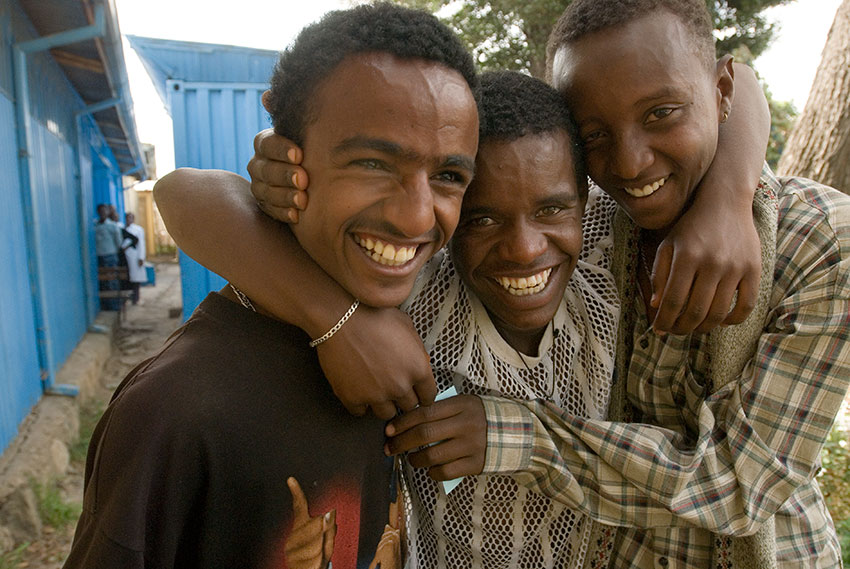
Photo Credit: Jim Daniels/FHI 360
The global economic landscape, along with the nature of work, is rapidly changing. More and more people are working outside of a typical office environment and in the gig economy. This is creating new economic opportunities — and challenges. The abilities and aspirations of young people, who now number almost two billion, are often unrealized, especially in the developing world. What is the best way to secure their futures?
We believe that positive youth development interventions can support and empower youth to be more engaged, healthy and productive members of their communities. Meeting young people where they are — whether in person or online — is necessary to build the critical skills and competencies to meet the demands of a growing and evolving economy. Our research shows that positive youth development interventions can facilitate resilience and, when combined with labor market analysis, prepare young people for future employment.
We believe that positive youth development interventions can support and empower youth to be more engaged, healthy and productive members of their communities. Click To TweetThe USAID Career Center project in Morocco offers an example of how the positive youth development approach can promote economic empowerment. The project provides safe spaces to connect young people to real and virtual platforms to build skills and minimize vulnerability. Six career centers assist university and vocational training students in developing critical skills like problem-solving, negotiation and resilience so that they can successfully transition from education to employment. Youth ambassadors and career counselors provide peer-to-peer mentorship and positive role models. “I am ready to face my professional future without fear,” said Marouane Bouzakhti, a graduate of Abdelmalek Essaadi University in Tangier and a recent career center participant. To date, 138,067 youth have benefitted from career center services both online and offline, and 29,105 have completed work-readiness training.
Positive youth development programs provide young people with the skills needed to adapt to future economic trends. Mozambique Programa Para O Futuro, a multifaceted program that included a project-based integrated curriculum, internships and support from e-mentors, helped older orphans and vulnerable youth develop foundational cognitive and life skills so that they could learn how to navigate the world of work and their personal lives. The e-mentor capability provided program participants with the ability to connect online with volunteer professionals to learn firsthand how to behave and communicate in and out of the workplace. These interactions also provided participants with access to professional networks to refine their skills and learn about employment opportunities. Nearly 80 percent of the program’s graduates are now studying, working or both.
To meet rapidly shifting market demands, raise incomes and grow revenues to thrive in today and tomorrow’s dynamic economy, young people must be well-prepared with information, skills and mindsets so that they can take advantage of the changing world of work. Positive youth development programs have the potential to unleash economic participation of young people and their families and communities.
